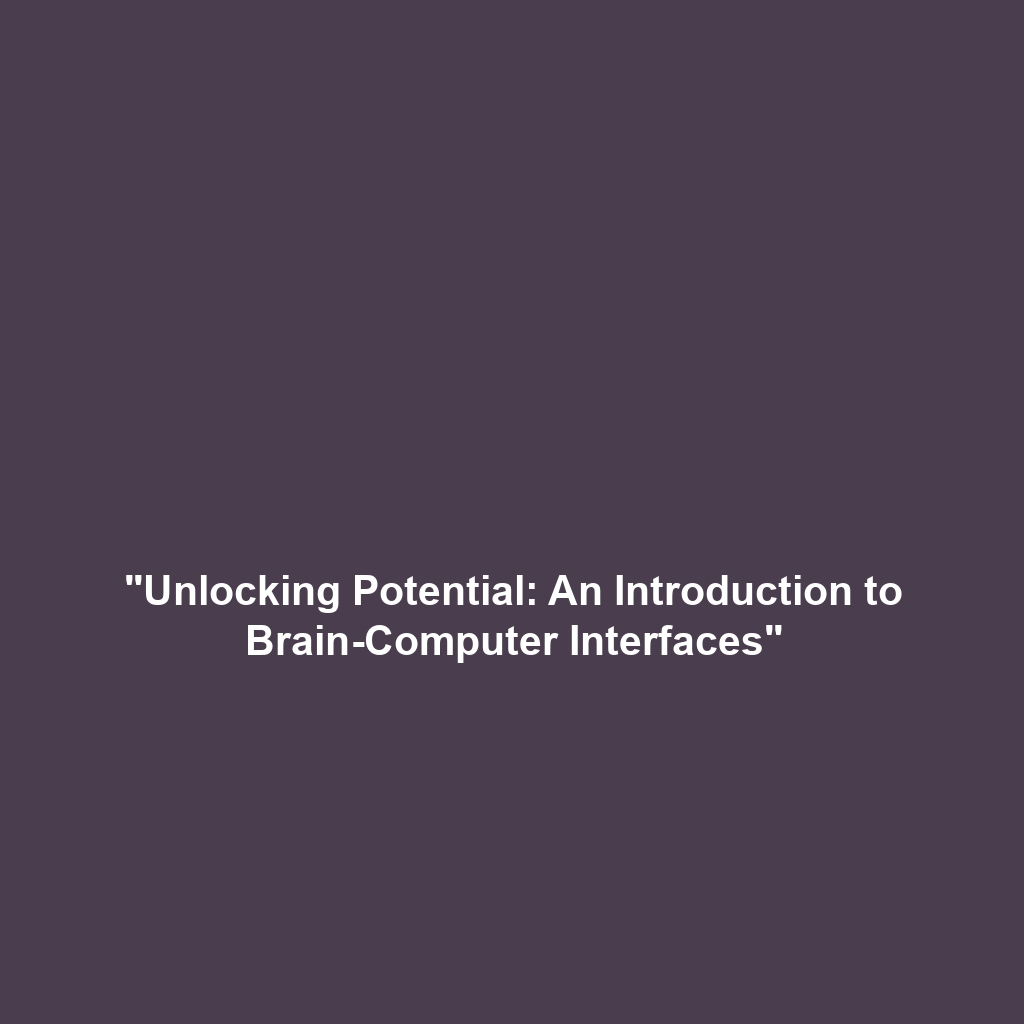Impact of Brain-Computer Interfaces on Employment and Society
Introduction: The advent of Brain-Computer Interfaces (BCIs) marks a transformative period in technology, significantly impacting various sectors, including employment and society. As BCIs bridge the gap between human cognition and machines, they present not only groundbreaking opportunities but also complex challenges in the workforce landscape. Understanding the impact on employment and society is crucial as it involves both ethical considerations and economic implications. This article delves into how these technologies redefine job roles and societal structures, offering insights into their significance and future potential.
Key Concepts
Brain-Computer Interfaces encompass a wide array of technologies that enable direct communication between the brain and external devices. The major concepts related to the impact on employment and society include:
- Cognitive Enhancement: BCIs can enhance cognitive abilities, potentially increasing productivity in various industries.
- Job Displacement: Automation powered by BCIs may lead to the displacement of certain job categories while creating new opportunities.
- Ethical Considerations: The societal implications of BCIs raise questions about privacy, consent, and equitable access to technology.
Applications and Real-World Uses
The applications of impact on employment and society in the realm of Brain-Computer Interfaces are wide-ranging. Here are some notable examples:
- Rehabilitation: BCIs facilitate recovery for individuals with neurological disabilities, enabling them to regain control over their environments and potentially return to work.
- Enhancing Human-Machine Interaction: Industries are leveraging BCIs for training simulations, where workers can interact with machinery intuitively.
- Remote Work: The ability to control devices through thought can alter how remote work environments function, allowing for more efficient home offices.
Current Challenges
Despite the promising benefits, there are several challenges of impact on employment and society in the context of Brain-Computer Interfaces, including:
- Privacy Concerns: Safeguarding personal thoughts and intentions from unauthorized access is a pressing issue.
- Social Equity: There exists a risk that only affluent individuals or companies will fully benefit from advanced BCI technology.
- Technological Limitations: Current BCIs may have limitations regarding accuracy and ease of use, impairing wider acceptance in workplaces.
Future Research and Innovations
Future research is focused on overcoming existing challenges and innovating new applications of BCIs concerning the impact on employment and society. Anticipated breakthroughs include:
- Next-Generation Interfaces: Development of non-invasive and more efficient BCIs that enhance user experience.
- AI Integration: Incorporating AI with BCIs for predictive analytics can drive workplace efficiency and job re-training programs.
- Expanded Accessibility: Research aimed at making BCIs more accessible to a broader population, addressing the issue of social equity.
Conclusion
In summary, the impact of Brain-Computer Interfaces on employment and society is profound, presenting both new opportunities and challenges. As technologies evolve, it is crucial for stakeholders to engage in discussions that address ethical and societal implications. For those interested in exploring this topic further, consider reading about rehabilitation technologies, the future of work, and ethical considerations in BCIs.
